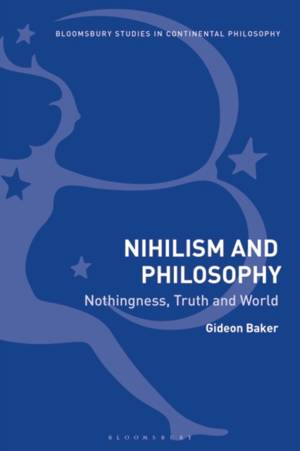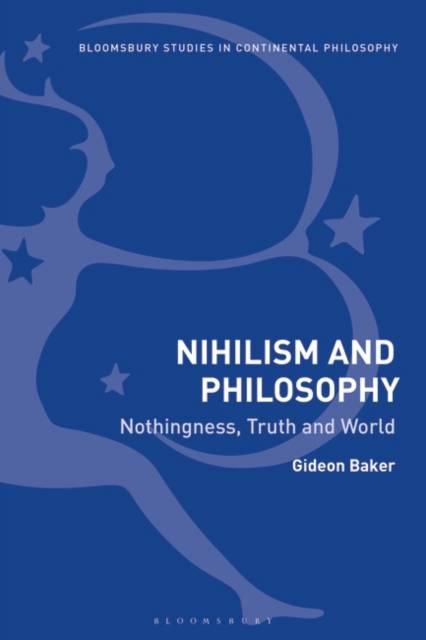
Je cadeautjes zeker op tijd in huis hebben voor de feestdagen? Kom langs in onze winkels en vind het perfecte geschenk!
- Afhalen na 1 uur in een winkel met voorraad
- Gratis thuislevering in België vanaf € 30
- Ruim aanbod met 7 miljoen producten
Je cadeautjes zeker op tijd in huis hebben voor de feestdagen? Kom langs in onze winkels en vind het perfecte geschenk!
- Afhalen na 1 uur in een winkel met voorraad
- Gratis thuislevering in België vanaf € 30
- Ruim aanbod met 7 miljoen producten
Zoeken
€ 79,95
+ 159 punten
Omschrijving
The question of nihilism is always a question of truth.
It is a crisis of truth that causes the experience of the nothingness of existence. What elevated truth to this existential position? The answer is: philosophy. The philosophical will to truth opens the door to nihilism, since it both makes identifying truth the utmost aim and yet continually calls it into question.
Baker develops the central insight that the crises of truth and of existence, or 'loss of world', that occur within nihilistic thought are inseparable, in a wide-ranging study from antiquity to the present, from ancient Cynics, St Paul, Nietzsche, Heidegger, Foucault, Agamben, and Badiou.
Baker contends that since nihilism is always a question of the relation to the world occasioned by the philosophical will to truth, an answer to nihilism must be able to propose a new understanding of truth.
It is a crisis of truth that causes the experience of the nothingness of existence. What elevated truth to this existential position? The answer is: philosophy. The philosophical will to truth opens the door to nihilism, since it both makes identifying truth the utmost aim and yet continually calls it into question.
Baker develops the central insight that the crises of truth and of existence, or 'loss of world', that occur within nihilistic thought are inseparable, in a wide-ranging study from antiquity to the present, from ancient Cynics, St Paul, Nietzsche, Heidegger, Foucault, Agamben, and Badiou.
Baker contends that since nihilism is always a question of the relation to the world occasioned by the philosophical will to truth, an answer to nihilism must be able to propose a new understanding of truth.
Specificaties
Betrokkenen
- Auteur(s):
- Uitgeverij:
Inhoud
- Aantal bladzijden:
- 240
- Taal:
- Engels
- Reeks:
Eigenschappen
- Productcode (EAN):
- 9781350136748
- Verschijningsdatum:
- 31/10/2019
- Uitvoering:
- Paperback
- Formaat:
- Trade paperback (VS)
- Afmetingen:
- 156 mm x 234 mm
- Gewicht:
- 353 g

Alleen bij Standaard Boekhandel
+ 159 punten op je klantenkaart van Standaard Boekhandel
Beoordelingen
We publiceren alleen reviews die voldoen aan de voorwaarden voor reviews. Bekijk onze voorwaarden voor reviews.









